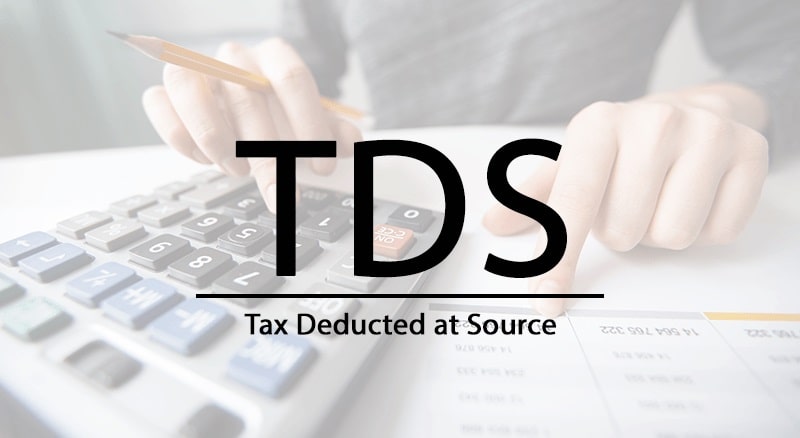What do you get by investing in mutual funds? Do you have any guesses? The definite answer is that you generate returns. However, did you know something cool? Mutual funds can give you certain deductions and exemptions that help an individual or enterprise save up so much on mutual fund investments. If you did not know, you can learn everything about it in this post.
Saving Up On Taxes through Mutual Funds

So, let’s get started to know how tax-saving happens with mutual fund investments:
1. ELSS Funds
ELSS Tax Saving Mutual Funds are investment instruments primarily investing in equities. These funds have a lock-in period of three to three years, and they are also eligible for tax deductions under Section 80C of the Indian Income Tax Act. Investments in ELSS funds have a maximum of Rs. 1.5 lakhs in one financial year, and it is all under Section 80C.
2. Long-Term Capital Gains Tax Benefits of Mutual Funds
Long-term capital gains come from selling an equity mutual fund, which is taxed at a much lower rate. It is according to the tax laws applicable in that financial year. As of now, long-term capital gains on equity funds are taxed at 10% on gains of more than Rs. 1 lakh. However, the gains that were earned up to January 31, 2018, were grandfathered, and only the gains made after this date are considered for taxation.
3. Tax-Free Dividends
Some mutual funds, particularly equity-oriented funds, may provide tax-free dividends. Investors receive tax-free dividends from equities mutual funds.
4. Systematic Investment Plans
Systematic Investment Plans allow investors to make recurring investments in mutual funds. SIPs in equity-linked mutual funds may give the benefit of rupee cost averaging, thereby mitigating market volatility.
5. Indexation Benefit on Debt Funds
Debt mutual funds that invest in different forms of fixed-income instruments may benefit from indexation for long-term capital gains taxes. Indexation helps to adjust the purchase price of an investment for inflation, lowering taxable capital gains.
Also read: List of Non Taxable Incomes in India
What is the Best Way to Save Taxes with Mutual Funds?
So, let’s get back to the base aspect that was previously spoken about everything about ELSS Funds. What is the best way to save taxes in mutual funds? With no second thought, the best way you can save taxes in mutual funds is ELSS funds. But how? Let’s find out!
ELSS mutual funds enable you to save tax under Section 80C of the Income Tax Act of 1961. Investments up to Rs. 1,50,000 are eligible for yearly tax deductions. Although you can invest more, any extra funds will not be eligible for deductions.
ELSS fund returns are subject to 10% long-term capital gains tax if the total amount from equity-oriented mutual funds/equity shares exceeds Rs. 1,00,000 each year. If you choose the dividend option, distributions will be taxable in the hands of the investors, and the mutual fund will deduct TDS at 10% for resident investors and 20% (plus relevant surcharge and cess) for non-resident investors before making payments.
However, the investor can claim a tax credit for the TDS deducted when completing their yearly returns.
Despite this, ELSS funds are regarded as one of the finest tax-saving investing options due to their high return probability and relatively short lock-in time when compared to other choices.
How to Invest in ELSS Funds?
Once you’ve settled on a growth or dividend strategy based on your objectives, compare different schemes based on their past performance. Though not a guarantee of future performance, it can be a useful signal. Also, verify for consistency in returns. Other factors to consider are age and fund size. A larger fund that has held its value over time suggests more investor trust.
However, rather than following the market trend, you should consider other signs and choose a fund that best fits your financial goals
What to Consider Before Investing in ELSS Funds?
Before investing in ELSS tax-saving mutual funds, you should consider the following:
- Outline the reasons for investing in ELSS funds. In addition to tax savings, the returns might help you achieve other goals, such as going on vacation or purchasing a vehicle.
- ELSS investments are eligible for up to Rs. 1,50,000 tax deductions annually under Section 80C of the Income Tax Act. However, the section also discusses alternative choices, including provident funds and life insurance policies. If you have additional claims, your full ELSS amount may be ineligible for deductions.
- Risk: ELSS funds invest primarily in stocks, making them riskier investments. Returns are not guaranteed. As a result, make sure you’re willing to take on the risk before investing.
- Time horizon: ELSS funds are not redeemable for at least three years. Make sure you don’t require the finances at that time.
Equity-linked savings programs are one of the better solutions for building wealth while saving taxes. However, like with any other investment, do your homework, assess your financial goals, and make you understand the features before going all in.
Conclusion
Investors should be informed of the precise tax rules and regulations that apply to mutual funds since they may change depending on the current tax legislation. It is best to speak with a financial advisor or tax specialist for tailored advice based on your specific financial objectives and circumstances. Furthermore, tax rules are prone to change, so being current on the newest legislation is essential for efficient tax planning.
Anantha Nageswaran is the chief editor and writer at TheBusinessBlaze.com. He specialises in business, finance, insurance, loan investment topics. With a strong background in business-finance and a passion for demystifying complex concepts, Anantha brings a unique perspective to his writing.


